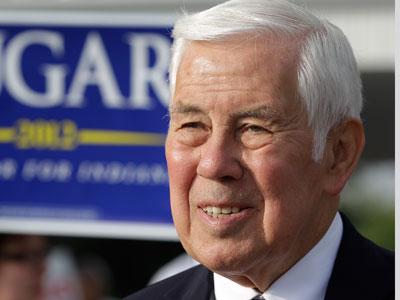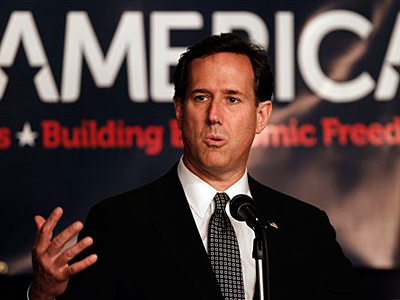Still a question whether a ‘blue wave’ is coming on November 6.
Making Democrats look good
Arithmetic-of-the-field numbers make the Democrats look good. In races for open seats in the U.S. House of Representatives, the Republicans have far more seats to defend than the Democrats. Fundraising for Democrats has largely been off the charts. Polling for weeks between Labor Day and last week seemed largely positive for Democrats in congressional races and to some extent in state races.
Politico’s morning tip sheets pounded a big-blue changed congress for weeks, as in this article from October 9:
The Republican House majority continues to show signs of collapsing, with Democrats steadily gaining ground toward erasing the 23-seat margin and ending eight years of GOP control.
A total of 68 seats currently held by Republicans are firmly in play — rated as ‘Lean Republican’ or worse for the GOP — presenting a stark contrast to the Democratic side, where only a half-dozen Democratic seats are in similar jeopardy [ . . .]
With a month to go until Election Day, there are now 209 seats either firmly or leaning in the Democratic column — only 9 shy of the 218 the party needs to wrest away control of the chamber — according to the latest update of POLITICO’s race ratings.
Twenty days later, some of the same outlook:
White House political director Bill Stepien wrote a three-page memo this week in which he outlined the political landscape confronting the GOP and bluntly warned that the party’s prospects for the House are ‘challenging.’ … [I]n the memo, Stepien attempted to divert blame from Trump toward several other factors that he said made a ‘traditionally challenging year even more difficult.’
He noted that dozens of Republican incumbents had retired, creating a plethora of vacant seats for the party to defend. Stepien also highlighted the fundraising challenges confronting the GOP, noting that 92 Democratic challengers outraised incumbent House Republicans during the third fundraising quarter.
Then there’s that historical pattern that the presidential party loses congressional seats in the first midterm election, also noted: “And he pointed out that the party in power historically suffers significant losses during a president’s first midterm election.”
Some of the predictions are coming true, depending on location. After days of early and absentee (mail-in) voting, the three states on the West Coast look solidly Blue, not that that’s a surprise. Virginia is trending Democratic, if the polling is accurate. Iowa and Minnesota seem to be returning to or staying in the fold, respectively.
Making Democrats look bad
But below the radar of the ‘influencers’, making the Democrats look bad, is the perception created by some of the very individuals and entities supporting the Dems, or at least opposing the White House.
In the perception of the voiceless, and we’re right about being voiceless, there are reasons why they/we don’t have much voice:
I. Money speaks loudest. I’ll keep this short, because the point needs no belaboring: the inundation of money, donations, may signal a certain kind of support in elections, but it’s no sign of small-d democracy. Candidates and campaigns have to raise funds, but the seemingly ceaseless, breathless hype about the tidal wave of funds going to Democratic-aligned super PACs is anti-democratic, anti-voiceless. Every headline about another twenty million from Michael Bloomberg, et al., confirms that these are people who have more than you and I have.
II. Big-time media speak loudest. I’ll condense this, since it calls for a book, but the bottom line is that the hysterical contingent in the news media is damaging Democrats. It is not the news media’s job to help Democrats, of course. And there is little or nothing that candidates can do about a certain kind of support. There is no (lawful, public) way the Democratic Party can rein in the relentless triumphalism, name-calling, and ganging-up in some of the biggest media outlets. It is free expression, albeit very well-paid expression. But the ugly boasting about destroying President Trump; the moral outrage of wrapping themselves in the mantle of the Resistance of World War II; and the foolish insistence that they’re winning, crushing all opposition, whatever–as in hyping a ‘blue wave’–turn many people off.
As they should. For millennia, self-awareness has been considered part of human wisdom. When big media outlets go holier-than-thou, wisdom is not what comes across. You can see why news media don’t want to revisit the (long) era when the U.S. press supported racial segregation. But the refusal to mention their support for invading Iraq is breathtaking. Then there’s the extent of how wrong they all were about the 2016 election. Then there’s Juanita Broaddrick. I believe Christine Blasey Ford, and said so in writing. But I also believe Juanita Broaddrick, and have said so.
That brings me to point number three:
III. Loudmouths speak loudest. Social gestures can be misconstrued, and will be misconstrued. I don’t think Amy Schumer’s getting herself arrested will benefit Democrats on Nov 6. Nor am I sure it will benefit women or rape victims. Schumer is probably a good person acting with good intentions, but we need more rape crisis hotlines, more support for law enforcement and prosecutors in criminal assault cases, better processes for ‘electing’ judges (the process is dreadful in Maryland), and more research into the causes and the incidence of rape–not another reminder that some people can afford to get arrested where others can’t.
The relationship between celebrity and feminism is mixed. There have always been female celebrities, in societies by no stretch of the imagination gender-equal. Tragically, demonstrators against rape at the Capitol probably came across like the over-painted loudmouths on Bravo’s Real Housewives franchise or the ladies on Bridezilla. (By the way, why are those shows on the air?) Rep. Mazie Hirono’s (D-HI) saying that men should “shut up” did not help, nor is it feminist. Too bad, because her solid comments on Kavanaugh’s dishonesty before Ford’s testimony should have gotten more cogent media attention at the time.
Meanwhile, that argument about ‘your sons’ being at risk of some day being falsely accused is powerful, and yet Democrats and their allies in media pretended that it wasn’t. Like the ‘bathrooms’ issue, it may be bogus, but it’s effective.
Combination of all the above: For the past two years, our 9.9 percent in the public discourse could hardly have done more to come across as entitled, elitist, and oblivious, had they been given a script.
Oblivious, in combination with entitled and elitist, comes across as–frankly–stupid. Once again, lesson learned–by the rest of us: rich people don’t pay for stupid mistakes the way poor people do.
Not a winning message for the Democratic Party, regardless of outcome tomorrow.











